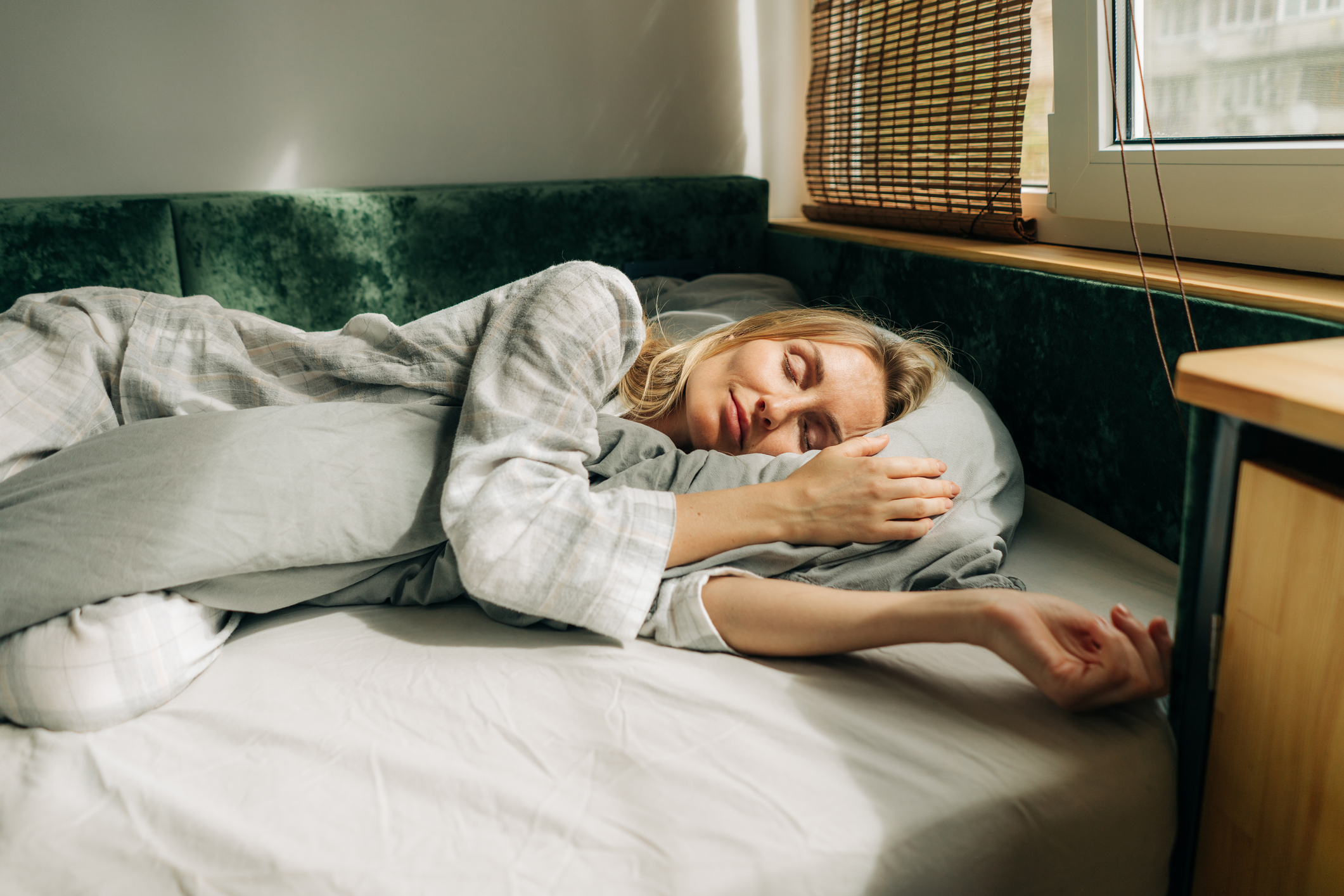Get Easy Health Digest™ in your inbox and don’t miss a thing when you subscribe today. Plus, get the free bonus report, Mother Nature’s Tips, Tricks and Remedies for Cholesterol, Blood Pressure & Blood Sugar as my way of saying welcome to the community!
Say goodbye to this food group to say goodnight to insomnia

It’s no secret that the foods we eat or don’t eat can have a direct effect on how we feel, and on our cognitive abilities.
Before I sit down to work for the day, I eat a breakfast that includes protein along with those carb-filled muffins that I love. I know that the protein in eggs, cottage cheese or yogurt will keep me more alert.
That’s because the neurotransmitters that are the messengers between brain and body are made of amino acids, the building blocks of proteins.
It’s also no secret that refined carbs like white bread, soda, white rice, and pastries, with their added sugar, have a high glycemic index. Eating them raises your blood sugar much too rapidly, setting you up for heart disease, diabetes, and cancer.
Now, a new study has shown that eating too many of those refined carbs may trigger another problem, one that may not seem like as much of a threat, but that comes with its own set of health risks.
What causes insomnia?
Insomnia is a sleep disorder in which you have trouble falling asleep or staying asleep.
Short term or acute insomnia lasts from one night to a few weeks. Insomnia is chronic when it happens at least three nights a week for three months or more.
A cold or allergies, caffeine use or a stressful situation can all cause acute insomnia. On the other hand, an overactive thyroid or chronic pain can steal your sleep for weeks on end.
At least 30 percent of adults deal with insomnia. In particular, women who are going or have gone through menopause are prone to sleep problems. Lowered levels of progesterone, a sleep hormone, are partly to blame.
But a Columbia University study has shown that postmenopausal women who ate the most refined carbohydrates — particularly added sugars — were 16 percent more likely to develop insomnia than those who ate the least, while women who ate more vegetables, fiber and whole fruit (not juice) were about 14 percent less likely to lie awake at night.
The explanation?
When you eat foods high in refined sugar, your body releases insulin to cope with those higher levels. As a result, your blood sugar drops just as rapidly as it rose, and your body releases adrenaline, which raises blood sugar again. This “yo-yo” effect on your blood sugar interrupts sleep.
This is true of most people, not just premenopausal women. Therefore, the study authors suspect that their findings will also hold true for a broader population, including men and younger women.
Change your diet and sleep through the night
Sleep is more complicated than we’d imagine. We can’t just put our heads down on the pillow and settle in for a solid seven or eight hours of uninterrupted sleep. Various chemicals control our sleep patterns and quality, and our food has an effect on those chemicals.
For example, orexin is a brain chemical that stabilizes asleep and awake states. It turns out that a high-fat diet decreases our sensitivity to orexin.
As far as sugar goes, making changes to your eating habits is a powerful way to improve your sleep, whether you have a few restless nights or are suffering from chronic insomnia.
And sleep loss isn’t only about feeling groggy… it’s been linked to several types of cancer, as well as increased risk of depression, heart attack, diabetes, and stroke.
So, if you can’t fall asleep at night, or keep waking up, we’d recommend you cut way back on the refined carbs, and add at least a serving a day of fresh vegetables, including high-fiber cruciferous vegetables, as well as fresh fruits.
And right before bedtime, try some tart cherry juice, passionflower or chamomile tea, or oatmeal, a cereal high in melatonin.


Celestial Seasonings Sleepytime Assorted Tea Bundle:
(1) Sleepytime Classic, (1) Sleepytime Vanilla, (1) Sleepytime Peach, and (1) Sleepytime Honey (4 Total Boxes) – Gluten Free & Caffeine Free
Sources:
- Refined carbs may trigger insomnia, finds study — Columbia University Irving Medical Center
- High glycemic index and glycemic load diets as risk factors for insomnia: analyses from the Women’s Health Initiative — The American Journal of Clinical Nutrition
- Brain Power: Why Proteins Are Smart — Psychology Today
- Certain Foods May Help Postmenopausal Women Sleep Better — The New York Times














